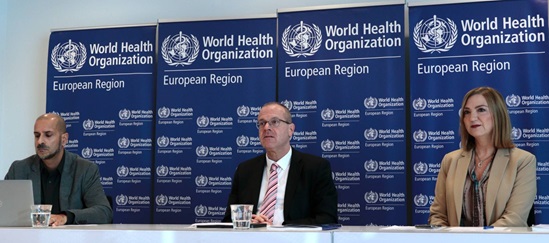WHO supports countries in strengthening the health and well-being of children and adolescents, recognizing schools as critical environments for learning, development and social inclusion.
Living with the impact of the pandemic
The coronavirus disease (COVID-19) pandemic had extensive effects on the health, well-being and education of children and adolescents across the WHO European Region. Widespread school closures and infection control measures led to the largest disruption to education systems in recent history, with detrimental consequences for the development and future life prospects of children and adolescents.
The pandemic also had profound implications for early childhood development. Evidence shows that disruptions to early learning, health services and family support systems affected the foundational years of life and widened inequalities between children from different socioeconomic backgrounds. However, there is a concerning lack of evidence and data on the long-term consequences across WHO European Region Member States.
Schools essential for well-being and social connections
Schools play a vital role as the foundation for healthy lives, uniquely positioned as hubs, not only for education, but also for social connections with peers and trusted adults, access to welfare services and safety, fostering individual well-being and wider societal inclusion.
Together with partners, WHO continues to elucidate the full impact of these disruptions and advocate for policies that prioritize the holistic needs of children and adolescents. Evidence from across the Region shows a consistent deterioration between the pre- and post-pandemic periods in key domains of adolescent well-being, such as education, health, connectedness, safety and resilience. These negative impacts disproportionately affected the most vulnerable, which is particularly evident across mathematics and science, where students from more deprived backgrounds have fallen further behind their more affluent peers.
Every school to become a health-promoting school
WHO and its partners are working to support countries in addressing these challenges and ensuring that every school becomes a health-promoting school through:
- evidence-informed policies
- regional collaboration
- strengthening networks.
By fostering environments that support learning, health and equity, WHO aims to ensure that children and adolescents not only recover from the pandemic’s impact, but thrive in the years ahead.










